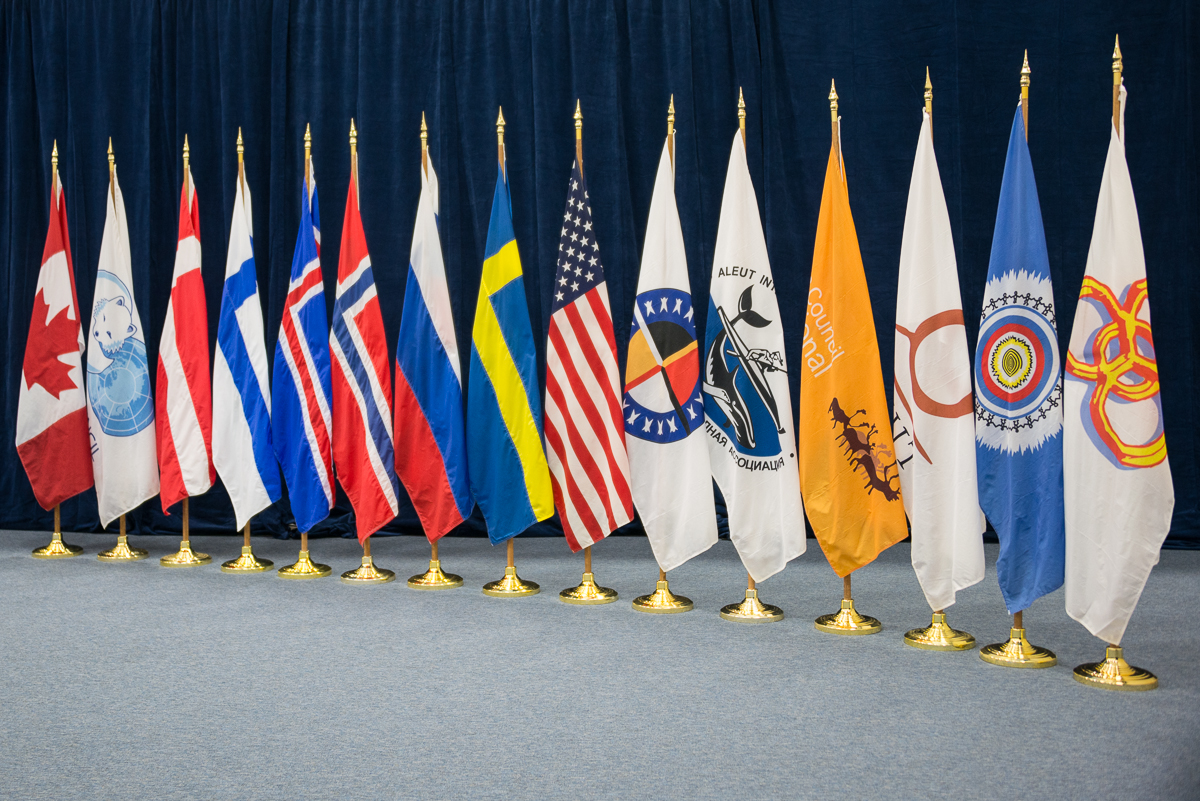Arctic Council nations to resume limited cooperation — without Russia
The so-called "Arctic 7" said they will resume work on projects that don't involve Russia.

All seven countries other than Russia that make up the Arctic Council announced on Wednesday a “limited resumption” of the forum’s work — but without Russia.
On March 3, Canada, Denmark, Finland, Iceland, Norway, Sweden, and the United States — sometimes known as the “Arctic 7” — suspended their work in the council after Russia launched an invasion of Ukraine.
Now, they are moving to restart at least some of that work.
“We intend to implement a limited resumption of our work in the Arctic Council, in projects that do not involve the participation of the Russian Federation,” the countries said in a statement. “These projects, contained in the workplan approved by all eight Arctic States at the Reykjavik ministerial, are a vital component of our responsibility to the people of the Arctic, including Indigenous Peoples.”
Russia currently holds the council’s two-year rotating chair. Its top Arctic diplomat, Nikolay Korchunov, who is also currently the chair of the Arctic Council Senior Arctic Officials, decried the initial freeze, but also said at the time that Russia would continue the work of its chairmanship with a focus on domestic issues.
Following the March 3 pause, it’s been unclear what future Arctic collaboration between governments might look like — though a widespread desire for some way for the council’s work to continue has also been apparent.
“The statement responds to the very strong desire among many in the Arctic community to proceed with aspects of cooperation that had been paused on March 3,” said Evan T. Bloom, a senior fellow at the Wilson Center’s Polar Institute.
The nations also said in the statement that they would continue investigating other ways to “further continue the Council’s important work.”
The seven nations other than Russia appear to have made the decision without consulting the council’s permanent participants, the six groups that represent Indigenous groups in the forum.
“The permanent participants were not involved in the discussions,” both regarding the pause in March and the resumption now,” said James Stotts, head of the Inuit Circumpolar Council delegation to the Arctic Council. “We were notified after they made their decisions.”
“We don’t like it that we weren’t consulted prior to things being decided,” Stotts said. Within the ICC, “not everybody is in agreement, I think, on reopening the Arctic Council right now — or even in a limited way.”
And it’s not clear how activities can resume without Russia, he said. “There are more questions than answers with what’s going on now for us.”
State Department officials acknowledged an inquiry from ArcticToday, but said they couldn’t immediately provide a response. (We’ll include any such responses in an update to this story, or in a future story.)
However, according to a separate U.S. State Department guidance document viewed by ArcticToday, the limited resumption “will not extend to participation in meetings of the Council or its subsidiary bodies.”
Russia is not being removed from the council, but work will continue on approved projects that don’t require Russian participation, the guidance document said.
That’s complicated, because as a founding member of the forum, Russia is permitted to participate in any project.
Russia “may have its own views about what rights it has to participate in various projects that were launched under mandates of the council,” Bloom said.
It is also not clear how the other nations would keep Russia from requesting participation in future projects, even as it is excluded from some existing projects in which it wasn’t previously involved.
The results of all projects are usually reported back to all senior Arctic officials for approval, even if they didn’t participate in the project, in order to reach consensus before releasing the results.
“It isn’t clear how that would work, if the regular structures of the council are still going to be employed,” Bloom said.
There is a recent precedent for sharing Arctic Council work through less formal channels.
In 2019, after then-Secretary of State Mike Pompeo refused to sign a ministerial declaration that included language on climate change, consensus could not be reached and the statement was not released. However, the Finnish chair released a statement thought to be similar to the scuttled declaration.
The resumption announcement is unrelated to Sweden and Finland’s request for membership in North Atlantic Treaty Organization, the State Department document said, and it does not have any bearing on Russia’s chairmanship of the council.
Russia is scheduled to continue chairing the council until May 2023, with Norway assuming the chairmanship next.
“At this point, most seem ready for Norway to take over the chairmanship next year,” said Troy Bouffard, director of the Center for Arctic Security and Resilience at the University of Alaska Fairbanks.
But it’s difficult to know how the transition will occur and whether it would involve Russia’s cooperation, he said.
The exclusion of Russia, even temporarily, from Arctic Council, could signal an increasingly competitive era after decades of cooperation in the Arctic, Bouffard said. With diplomatic ties severely curtailed, miscommunication in a rapidly changing region could rise.
Russia’s full-scale invasion of Ukraine meant that normal diplomatic engagement could not continue as normal, according to the State Department — and the conflict has only intensified since the council first paused work in early March.
Russia’s exclusion could still prove temporary, however.
“We remain hopeful that there will be a time to cooperate with all eight Arctic States in the Council in the future,” the State document said, before adding, “This is not that time.”